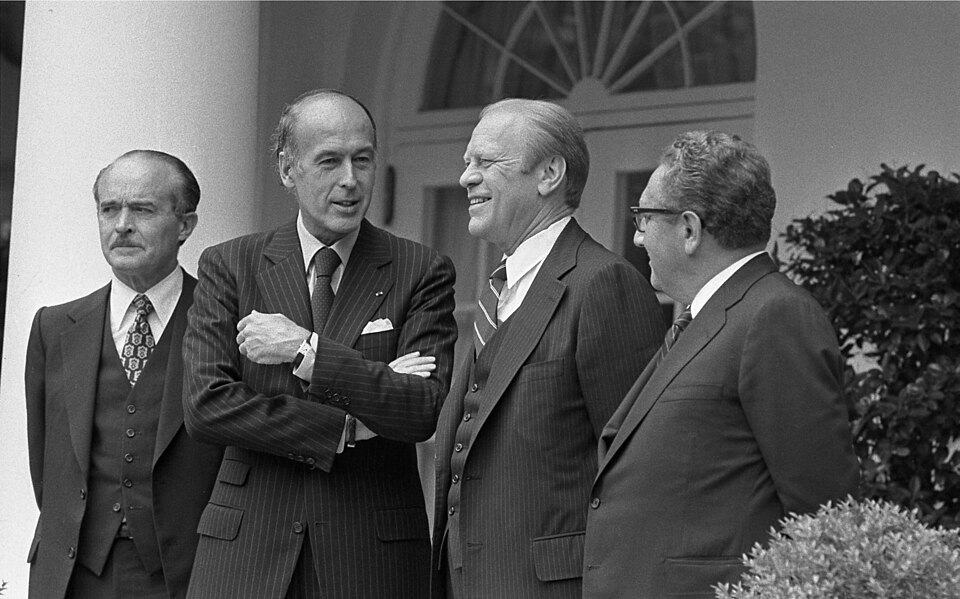The international community is experiencing mounting anxiety on the energy market. Gas and oil are becoming scarcer, while demand is escalating. The supply question is now an enduring and dominant feature on the geopolitical scene, and stabilising the oil price has become an economic necessity. These conflicts of interest have a tendency to intensify divisions between national economies that are already engaged in an acrimonious commercial power struggle. The resultant challenges that face the major industrial powers, whether established or emergent, have encouraged the adoption of competing strategies in Russia, China, India and the United States, while new opportunities are emerging for nuclear energy.
International fossil fuel strategies
‘Saving Oil in a Hurry’ was the title of a study published by the International Energy Agency (IEA) in 2005. This presented a candid summary of the structural oil crisis faced by the international community. Inevitably the question of fossil fuels has moved to centre stage and is now a major geopolitical factor that the G8 and the EU have recently added to their list of concerns. The cost of a barrel of crude oil (159 litres) is now permanently in excess of $60, curbing world growth and accentuating global inequalities. The established and emergent major powers are engaged in an economic and commercial power struggle and are intensifying their efforts to ensure control over the exploration/production and transport of these energy resources that are so passionately disputed by an increasing number of players. From now on, international alliances and tensions will develop around black gold and natural gas, strategic partnerships will fight for influence and latent confrontations will emerge from conflicts of interest, arising from nationalist pressures, but also from the restructurings and concentrations within the sector. These significant movements are destabilising for the international community and require vigilance. While the reasons for rocketing prices are in some respects illuminating, the resultant economic retrenchment merits particular attention, as stated by the G8 and the World Trade Organisation (WTO) as well as the Bretton Woods institutions–the International Monetary Fund (IMF) and the World Bank. It is evidently on the geopolitical scene that the more subtle and threatening aspects are being played out, while debates between increasingly predatory economies are becoming less and less diplomatic.
A much-disputed resource
The price of fossil fuels is dependant on three inter-related factors: an explosion in demand, allied to production and refining capacities that are barely able to keep pace; persistent uncertainties about reserves; and finally the instability of some areas of production. The IEA forecast a 2% growth in global consumption for 2005 to 84.3 million barrels per day (Mb/d). This situation is partly explained by Chinese excesses: since 2004 China has become the world’s second largest importer of crude oil. Beijing’s economic growth (10.1% in 2004) is pushing prices higher, and the trend is unlikely to be reversed for oil if the development potential offered by the Chinese market for the car industry is anything to go by. The IMF also predicts oil price volatility until 2030, especially since the world’s crude oil consumption rose by 2.6 Mb/d in 2004 (the highest annual growth since 1976) while production and refining capacities have barely increased over fifteen years. This weakness results from a combination of the chronic under-investment that has afflicted the sector, the significant rise in exploration/production costs, the propensity of the major national companies (including those in Latin America and the Gulf) to use profits earned for social projects, and the pressure from shareholders who are not slow in demanding short-term dividends. However, better late than never, the major players have appreciated the situation and have initiated an ambitious investment programme. In 2005, the European Union (EU), for its part, developed an Action Plan aimed primarily at increasing its refining capacity, in particular to arrest the rise in prices. However, the IEA calculates that an annual injection of around $90 billion between now and 2030 will be essential if the sector is to meet the forecast rise in world demand. The lack of production capacity can also be explained by the political instability that characterises certain production areas: latent civil wars, such as in Iraq and Nigeria,(1) persistent tensions, especially between Iran and the international community; the terrorist threat in the Gulf and the ideological approach to the energy question by Latin American producer nations. The new hydrocarbons law introduced by the Bolivian parliament in May 2005, which aims at raising taxation on oil companies to 50% of profits, has done little to reassure investors. Similarly, the political tensions in the Middle East, especially with the uncertainties surrounding the future of the Iraq and Israel/Palestine questions, preoccupy shareholders who are reluctant to invest without a minimum of guarantees.(2) Finally, we should be cautious in the face of the unpredictability of Russian power and the virtuous development, albeit fragile, of the nations of central Asia.
Il reste 81 % de l'article à lire




_astronaut_Sophie_Adenot_(jsc2025e058846_alt).jpg)



